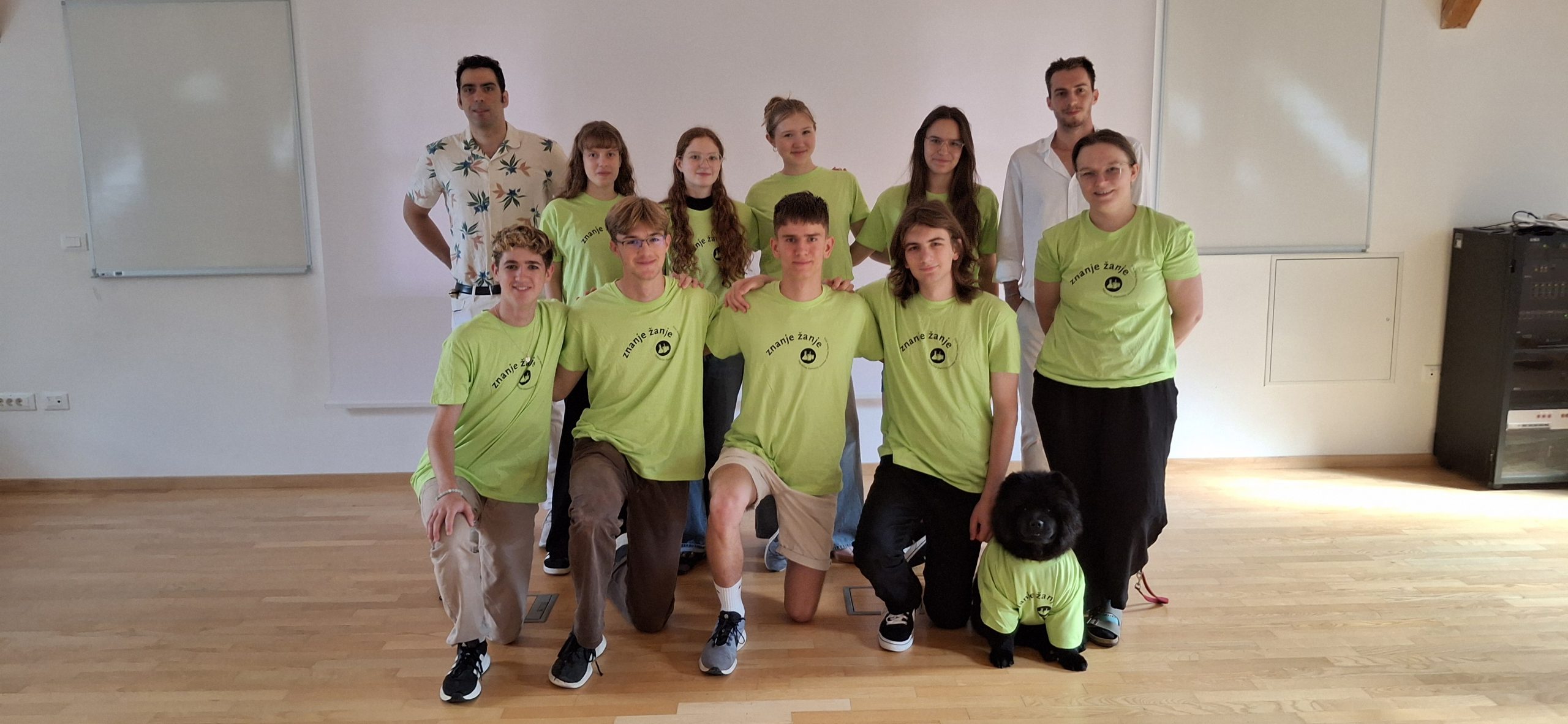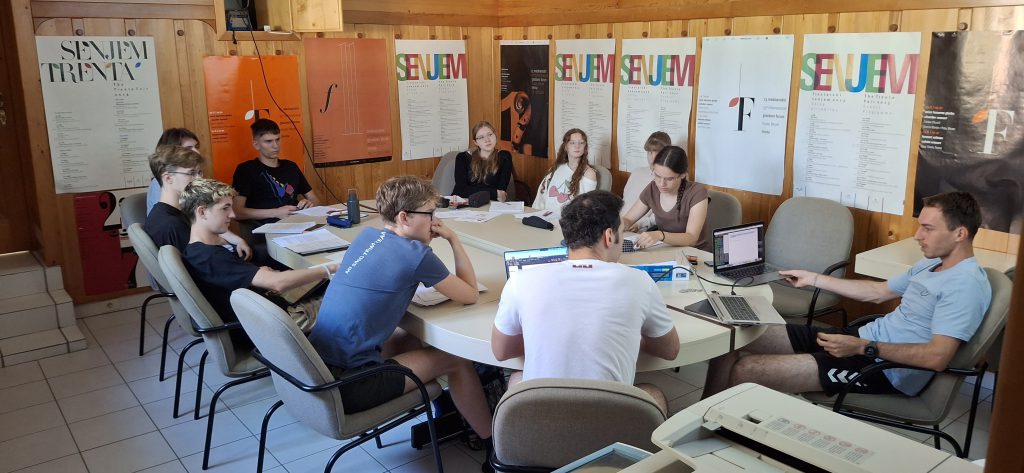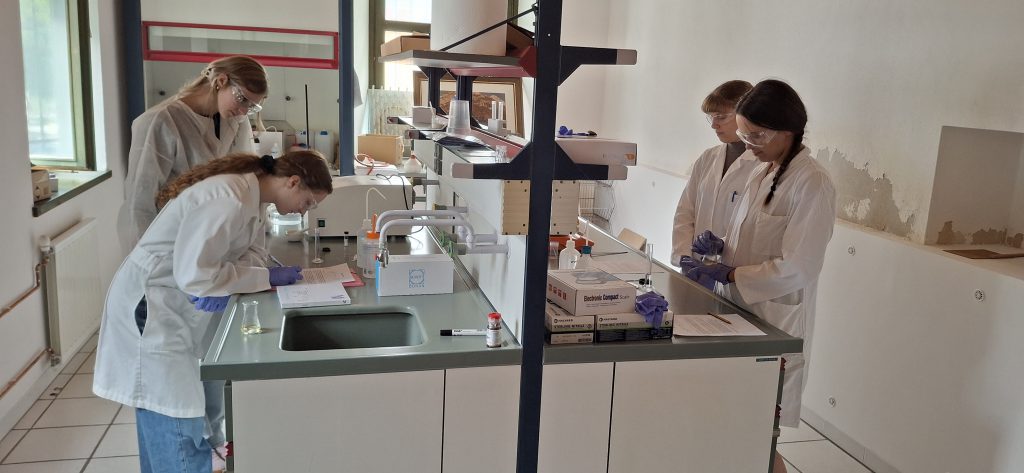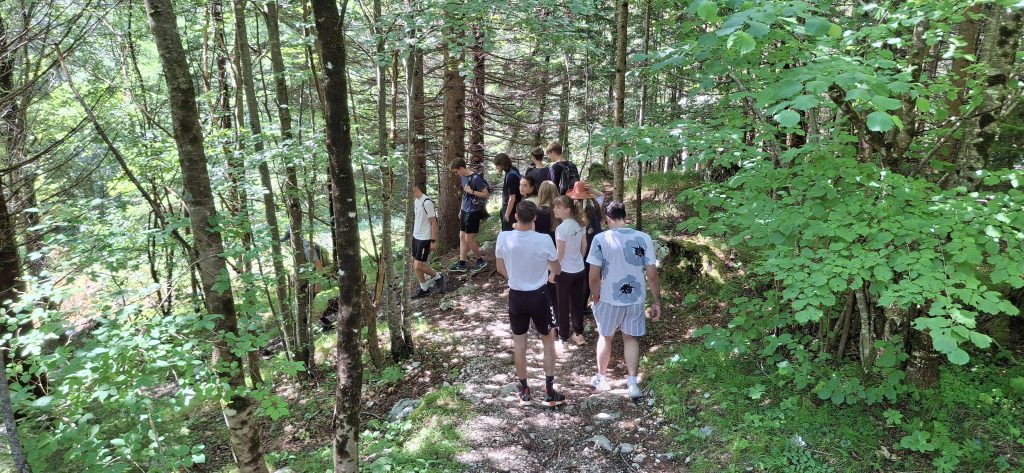
What do ASEF Fellows do during the summer?
In mid-July, the Interactive Chemistry Summer School by Imperial College London Graduates 2025, organized by the Association for Technical Culture of Slovenia (ZOTKS), took place in Trenta. It was once again led by our ASEF Fellow from the 2022 generation, Domen Pregeljc , a graduate of the prestigious Imperial College London, where he studied Chemistry with Molecular Physics, and is now a doctoral student at ETH Zurich. However, Domen is not just a theoretician.
Together with several other talented Imperial College graduates, Domen offered young participants an unforgettable and interactive insight into the world of Chemistry. The goal of this experience was clear: to inspire young people with the wonders of Chemistry and to show them how useful and important this science is in everyday life.

The Interactive Chemistry Summer School 2025 offered participants a diverse program. They immersed themselves in the world of practical experiments through five unique labs, covering various branches of Chemistry. Have you ever wondered how molecular simulations work or how new drugs are discovered? They sought answers in the Computational Lab, which introduced molecular simulation and discussed its role in drug discovery. Particularly interesting was the Chemical Kitchen Lab, a concept where they used harmless everyday ingredients like gelatin and egg yolks to create culinary masterpieces – from balsamic vinegar salt to chocolate bonbons. In the Chemical Kinetics Lab, they investigated the rate of chemical reactions by measuring conductivity and learned how to decipher reaction mechanisms from data. Young researchers even built their own UV-Vis spectrometer. This is a device used to measure how substances absorb light. With it, they verified the Beer-Lambert law. What exactly is that?
Imagine observing a glass filled with a colored liquid, such as red juice. As you gaze through it, the juice appears to possess a more intense hue. This phenomenon precisely mirrors how light behaves when it traverses a substance.

The Beer-Lambert law elucidates two fundamental principles regarding light’s interaction with matter: firstly, the more concentrated a substance is (i.e., darker or denser), the less light will successfully pass through it; and secondly, the greater the distance light travels through the substance, the less light will ultimately penetrate. Essentially, this law posits that the quantity of light absorbed by a substance is directly proportional to both its concentration and the path length of the light through it. This practical application allowed the summer school participants to comprehend the specific conditions under which this law remains valid and where deviations from its “ideal” behavior might manifest.
The most conventional, yet no less fascinating, was the Synthesis Lab, where participants synthesized organic compounds themselves and learned the fundamental principles of organic chemistry. Among the lecturers was also Imperial College graduate Andrew Bulata, who is currently studying forensic science with a focus on forensic chemistry at University College London (UCL). In addition to him, other distinguished experts from academia and industry shared their knowledge and experience in the fields of Chemistry, Biotechnology, and Medicine, offering participants valuable insight into the world of science.
Such initiatives prove that our ASEF Fellows are not only academics but also a significant force for global change, enriching our society with their passion and dedication.


